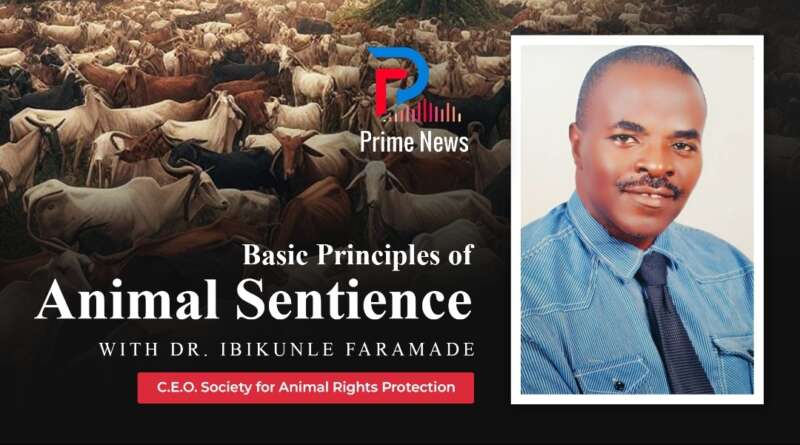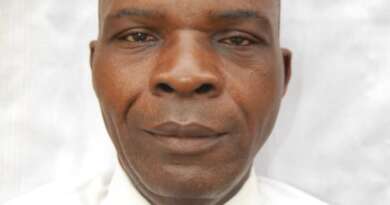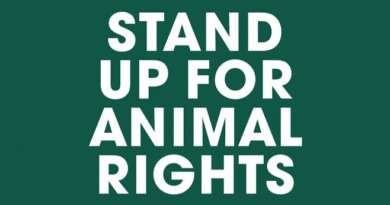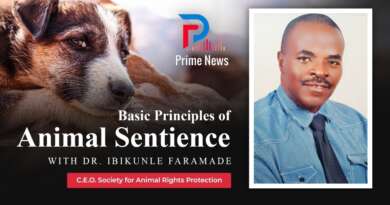Animal Welfare During Disasters and Emergencies in Nigeria
By Dr Ibikunle Faramade
According to the United Nations Office for Disaster Risk Reduction (UNODRR), disaster could be defined as a serious disruption of the functioning of a community or a society at any scale due to hazardous events interacting with conditions of exposure, vulnerability and capacity, leading to one or more of the following; human, material, economic and environmental losses and impacts. The effects of a disaster can be immediate and localized, but is often widespread and could last for a long period of time. The effect may test or exceed the capacity of a community or society to cope using its own resources, and therefore may require assistance from external sources, which could include neighboring jurisdictions, or those at the national or international levels. A disaster could be small scale or large scale and it may be slow or sudden in onset. Examples of slow onset disaster include drought, desertification, sea level rise and epidemic diseases. Sudden onset disaster include earthquake, volcanic eruption, flash flood, chemical explosion, critical infrastructure failure and automobile accidents among others.
On the other hand, emergencies, according to Marriam Webster Dictionary, is an unforeseen combination of circumstances or the resulting state that calls for immediate action. Occasionally, it is used interchangeably with disaster to refer to the same scenario.
Disaster could occur naturally (natural disaster) or man –made (anthropologically- induced disaster). Encyclopedia Britannica describes natural disaster as any calamitous occurrence generated by the effects of natural, rather than human-driven, phenomena that produces great loss of human life or destruction of the natural environment, (animals), private property, or public infrastructure. A natural disaster may be caused by weather and climate events or by earthquakes, landslides, and other occurrences that originate at Earth’s surface or within the planet itself. It could take place in any part of the earth including the earth surface, mountainous areas, water bodies etc. However, certain types of disasters are often limited to or occur more frequently in specific geographic regions.
Man- made disaster usually occur as a result of human activities which could intentional, accidental or due to negligence or outright failure of man-made systems. Other examples of man-made disaster include industrial pollution, ionizing radiation, toxic wastes, dam failures, transport accidents, factory explosions, fires and chemical spills.
In all of these disasters, the environment is known to be negatively impacted. Apart from this, humans and animals are equally at the receiving ends of the aftermath of the disaster. For example, aggressive tree planting has been a major project of the Federal Government of Nigeria (the great green wall) to reduce desertification. Ahead of the raining season in many states of the Federation, in order to reduce the incidence of flash floods and gully erosion, the ecological fund was created to fund many initiatives to overcome the challenges or to reduce its impacts. There is also a well-developed protocol to rescue and rehabilitate humans (those who have been affected by one natural disaster or the other). Necessity of rehabilitation and reintegration of those that have suffered losses led to the creation of State and National Emergency Agencies i.e. State Emergency Management Agency (SEMA) and National Emergency Management Agency (SEMA & NEMA).
These are noble efforts targeted at improving livelihood and quality of lives of victims of disaster. The recent frantic efforts of Oyo State government to contain and mitigate the dastardly explosion that rocked a section of Bodija Estate, in Ibadan, Oyo State capital, on 16 January, 2024 is worthy of special mention and commendation.
However, it should be noted that in addition to environmental and human impacts of any disaster, animals are also unfortunate partakers in the negative outcomes associated with disasters, especially, domestic animals. Wild animals are also worthy to receive welfare attention, but because they are in their natural habitats, they have the benefit of relocation from disaster centre points because of their ability to process information via signals that are not fully understood by humans.
During the Tsunami disaster of 2004, when the Indian Ocean waves caused very serious destruction of lives and properties, many animals were reported to have felt the vibrations and ran to higher grounds beyond the reach of the ‘angry water’ although , not all of them were so lucky to have moved to save havens before the current submerged them. Domestic animals do not have such opportunity of running, even, when they are able to feel the danger signal, because they have been confined and locked up.
It is therefore necessary for the Federal Ministry of Agriculture and Food Security to walk the talk of her vision to develop a robust animal welfare strategy during emergencies as promised during a stake holder’s workshop held in Nasarawa State in March, 2023. It is the belief of this writer, that existing structures of SEMA and NEMA could be used to achieve this goal seamlessly.
Unfortunately, animal welfare issues in Nigeria are usually viewed from the prism of trans-boundary animal diseases and zoonosis. Animal welfare is beyond this limited perspective. It is holistic and all encompassing. The Ministry needs to integrate their protocols with that of the aforementioned organizations, deploy her human and materials resources anytime any form of disaster erupts anywhere in the country.
To achieve this, the existing enabling laws of both SEMA and NEMA may need to be amended to accommodate veterinary components in line with global best practices. This saves cost, enhance the overall efficiency of the organizations and achieve better results with positive outcomes for the trio of the environment, humans and animals.
Dr. Ibikunle Faramade is a veterinary pathologist and a lecturer at the Federal College of Animal Health & Production Technology, Apata. Ibadan. He’s the C.E.O of the Society for Animal Rights Protection, a non-profit and a non-governmental organization dedicated to the promotion of animal welfare, animal rights and prevention of cruelty to animals.
animalrightsprotection2020@gmail.com , +2348028305284




